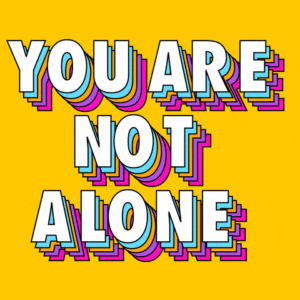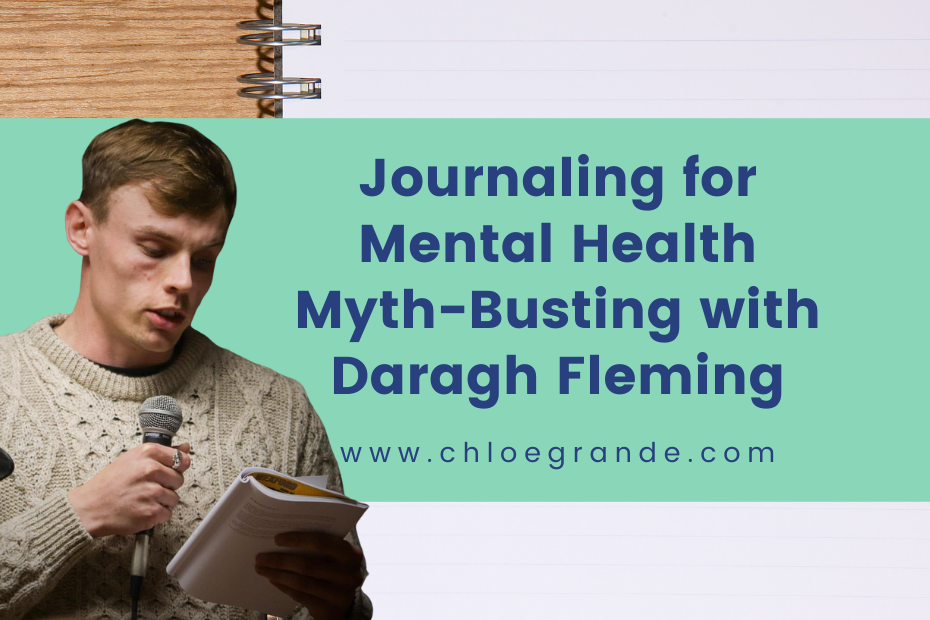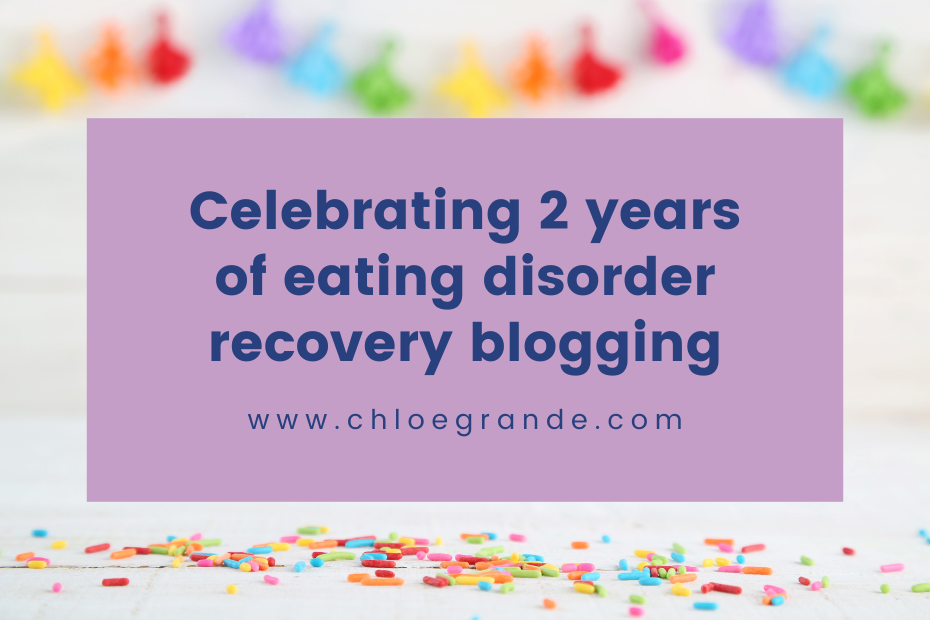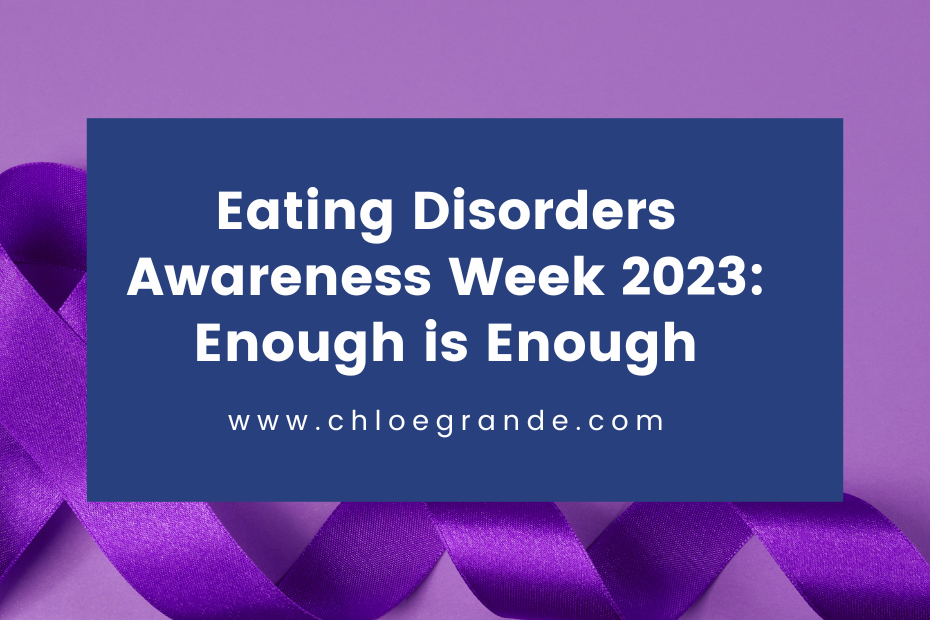Men’s Health Month is nearing its end this November, and with it, we’ve seen the flood of Movember hashtags and moustache selfies. While a lot of focus is placed on statistics surrounding men’s depression and suicide rates (they account for nearly 75% of suicide deaths in Canada!), we can’t forget about eating disorders, a life-threatening mental illness that is still feminized and misunderstood.
Despite stereotypes depicting thin, white females with anorexia, about 1 in 3 people with an eating disorder are male. They face additional hurdles in getting help due to self-stigma, lack of knowledge from clinicians and their eating disorders presenting differently than in females. Yet, men get eating disorders and us not validating these experiences causes more harm than good.
This Men’s Health Month, I was fortunate enough to speak to two prominent mental health activists: Sean Loughran and Sterling Renzoni. Both of them spoke candidly about their eating disorder journeys, tips for talking about mental illness and what’s next for their advocacy roles.
Take a look at what they had to say in this Men’s Health Month Q&A on eating disorders.

Sean Loughran is a Vancouver based writer covering books, fashion and culture. He has written for The Washington Post, Paper, FASHION and more.

Sterling Renzoni is a third-year chemistry and psychology Trent University student, mental health advocate and aspiring researcher.
How do we ensure people of all genders, backgrounds and identities get equitable access to ED treatment?
[In Sean’s Washington Post article, he mentions challenges from childhood and young adulthood: being told “boys don’t get eating disorders” by his doctor, coming out in a repressed Catholic environment and the pressures of being a competitive dancer.]
Sean: Looking back, that was almost twenty years ago, and while I was living in this small town, I did have access to the internet which opened up this whole other world. I would search for others like me, try to find books written by men, or other material specifically for or about men. There was very little which led me to believe that what I had was either not an eating disorder or that it was just another thing about me that would make it harder to integrate into society.
In terms of making eating disorder treatment fair and inclusive, there are many facets to this and much more than I could summarize without talking all day, but from personal experience, some include changing the narrative within treatment settings, inclusive of how providers present treatment and groups materials. Self-care group come to mind as an example of when I’ve felt forced to partake in activities such as doing face masks and feet soaks when self-care for me looks completely different. I also think of my nonbinary friends who have to fight to have their pronouns respected within a treatment space, in addition to finding the strength to face their eating disorders. Hospitals and treatment centres need to not only be fair, inclusive, and accessible, but they need to feel safe.

What are some of the challenges of being a student in eating disorder recovery?
Sterling: I luckily had the chance to recover 80% mentally and 100% physically from anorexia before going to university, so I had the hard part out of the way. But it’s hard to deal with the change in responsibility. You go from having your parents watch over you and ensure you’re eating the right amount of food to being all on your own. The other hard part is you go into the cafeteria at university and the nutritional information is all over the place. I would choose things like that daily special which had a little handwritten sign because I didn’t want numbers affecting what I ate.
On the bright side, I was able to find a life outside of my eating disorder. I got involved with Trent Active Minds, a mental health advocacy group on campus. You felt like you could be open with how you’re feeling. That was meaningful for me.
What is the biggest misconception with men and eating disorders?
Sean: The number one misconception is that men don’t get eating disorders. Some people in my life have made the assumption that I’ve been battling a substance use issue, cancer, or HIV/AIDS in the past. In my case, it’s also a societal belief that’s led to years of suffering without help, and without what I believe could have been a life-changing early intervention. For me, it’s always the what if someone had listened the first time. Where would I be now?
Sterling: Initially, I believed that men couldn’t have eating disorders or that it was not something they had to worry about. Because of the internalized misunderstanding, I worried that people would think that my experience wasn’t valid or I wasn’t sick enough. I also had misconceptions about eating disorder symptoms. I didn’t recognize that my exercise habits were a big component of my eating disorder.
I felt like I had to make an excuse for why I was sick or why I couldn’t be at school. It wasn’t a lie — I said my heart rate wasn’t good or my heart wasn’t healthy — but it wasn’t the truth. I could have told my friends that I was sick with an eating disorder but I thought it was embarrassing as a man to be open about that.

Do you have any tips for starting difficult conversations around mental illness and eating disorders?
Sean: It’s as though we’re hardwired against having those kinds of conversations from a very young age. As men, it’s not acceptable for us to break down and fall apart. It’s a sign of weakness in our society to show any kind of softness, sensitivity, and vulnerability as men. In my case, opening up so publicly, I was surprised to find that many of my male friends had also been harbouring secrets of their own battles with mental illness. The stigma around talking about what they were going through had stopped them from opening up and many of them felt the same shame I did. Once I shared, there was this ripple effect, and others shared with me.
I think every conversation about mental health can be challenging, especially if it’s your first time reaching out. What I’ve found helpful is online support networks and texting groups. Face-to-face is hard for me, and texting with peers or online support lowers the distress and helps me find the language for what I want to say. Journaling helps me to gather my thoughts before most conversations and also helps with grounding. I also journal after as a way to reflect.
Sterling: Having the conversation is a really important start, and including men in that conversation. It kind of starts with the basics. When I took psychology courses in first or second year, you look at the textbook on the section on eating disorders, and it’s all thin white women. What about men? What people who are transgender? The most important thing is we affirm that everyone’s experience with an eating disorder is valid. It doesn’t have to look a particular way. Not only about the representation of having the illness, but also about getting better from it. I wanted to make sure that people knew men can recover from eating disorders, too.


Do you have any upcoming projects and where can people find you online?
Sean: I completed my mental health worker certification earlier this year, and I’m continuing to advocate for men and LGBTQ+ individuals with eating disorders. When I shared my story this year, I didn’t know what the future held. I was still in treatment, and the response from so many around the world gave me strength and ignited this fire within me. I knew I needed to do more.
Website: https://www.avocadodiaries.com
Twitter: https://twitter.com/writersean
Instagram: https://www.instagram.com/sean_writes
Sterling: In the spring, there will be events for Eating Disorder Awareness Week. There’s a good chance I’ll be speaking because of my personal experience. There are also Eating Disorder Quality Standards from Ontario Health coming out that outline what good quality care looks like and what you should expect. And what kind of conversations you want to have with your healthcare team and what treatment looks like. Those conversations might be hard. I’d recommend people take a look at them.
Twitter: https://twitter.com/renzonisterling
Instagram: https://www.instagram.com/mentalhealthwsterling
More information about Trent Active Minds: https://linktr.ee/trentactiveminds

I can only imagine the challenges Sean and Sterling faced during their own eating disorder recoveries. It’s a difficult process for anyone to go through, but when you’re told “boys don’t get eating disorders” or warning signs like overexercise are missed, it can be so much more challenging.
Sean and Sterling are two men that I admire for their dedication to advocacy and reframing what it looks like to be open about your mental health. In their own ways, they stand out as two advocates who are walking the walk. Thank you for your insight!
As Sterling noted in our conversation, these discussions on men’s mental health are important all year. To take a look at other work I’ve done on men and eating disorders, check out my book review of Jason Wood’s orthorexia memoir, other book reviews and last year’s Men’s Health Month Q&A.
Remember, men get — and can recover from — eating disorders, too.




Such a persoanl look at 2 brave men ! Thank you for sharing<3
Agreed, so grateful for Sean and Sterling for sharing their eating disorder recovery stories! Glad you enjoyed the post 🙂
Great to hear from different perspectives!
Thank you! It’s one of my favourite parts about blogging and interviewing people with different lived eating disorder experiences.